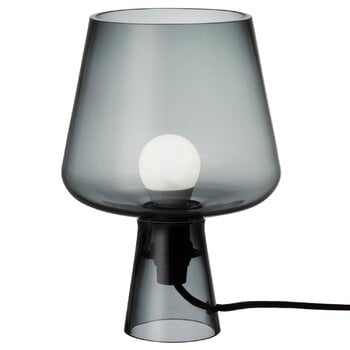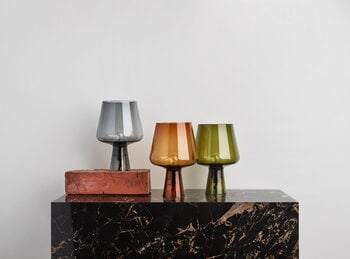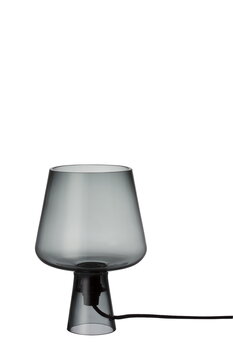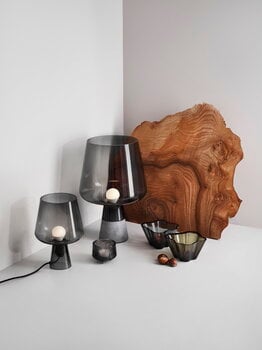The smallest member of the Leimu table lamp range by Iittala is made of a single piece of transparent, coloured glass. The all-glass structure gives the Leimu lamp an airy feeling and diffuses the light in a soft, atmospheric way.
The Loimu collection was designed by Norwegian-born Magnus Pettersen who drew the inspiration from traditional lampshades as well as modern architecture. The warm light of Leimu creates a cosy ambience to any room, and the mouth-blown, tinted glass makes every luminaire unique. The Leimu lamps have been manufactured in Finland.











